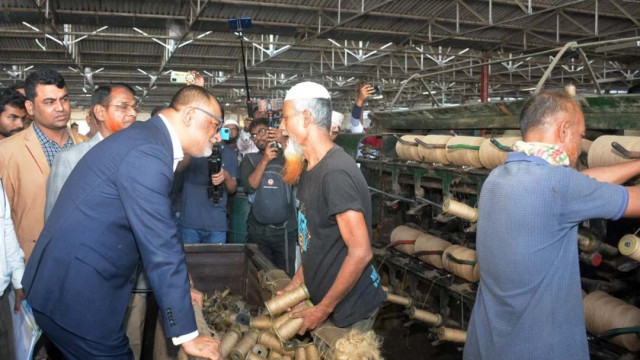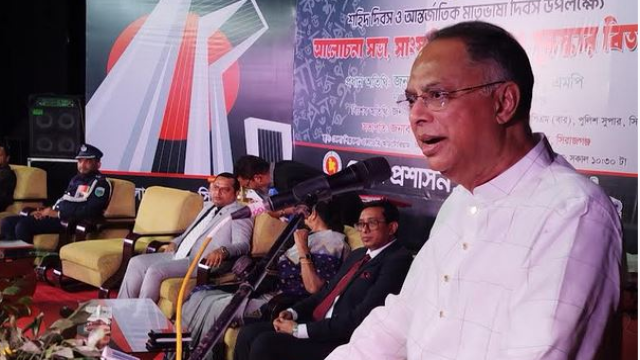Dhaka, Feb 10 (V7N) –Sk Bashir Uddin, adviser for the ministries of commerce as well as textiles and jute, has said syndicates manipulating the prices of essentials are not more powerful than the government, saying the administration is closely monitoring the stockpiling and supply of various products in the country.
The current, temporary crisis in the edible oil market will be resolved in a few days, the adviser told journalists after inspecting production activities at the Bangladesh Jute Mills Corporation’s Daulatpur Jute Mill in Khulna on Monday.
The adviser mentioned that the government-owned textile mill in Kurigram, which had been closed, was leased to the private sector last week.
This move allows investors to seize opportunities there, and he expressed hope that three more mills would be leased in the coming week.
Bashir highlighted that government-run jute and textile mills have not been sustainable in the long term, except for accumulating massive losses. Thus, the plan is to transfer the ownership of these mills to the private sector, he added.
He also explained the challenges in maintaining the country’s jute mills, saying that to keep all the existing jute mills operational, around 4 million tons of jute are needed annually.
However, the country produces only 1.2 million tons of jute, and globally, only 2.5 million tons are produced each year, the adviser said.
"Given these limitations, it is not feasible to run so many mills solely based on jute."
Therefore, the government is relaxing conditions for leasing jute mills, allowing opportunities for other industries, alongside jute-based industries, to establish their factories, he said.
Bashir highlighted the positive impact of the Daulatpur Jute Mill’s private sector operation, which has provided employment for approximately 700 individuals, with plans to create job opportunities for another 3,000 people.
He emphasized that through such successful initiatives and investments, employment prospects would improve.
The mill is currently producing both jute products and footwear, and efforts are ongoing to run these operations profitably.
He noted that such innovative approaches are less likely to be successfully implemented under government management.
END/MSS/AJ































Comment: